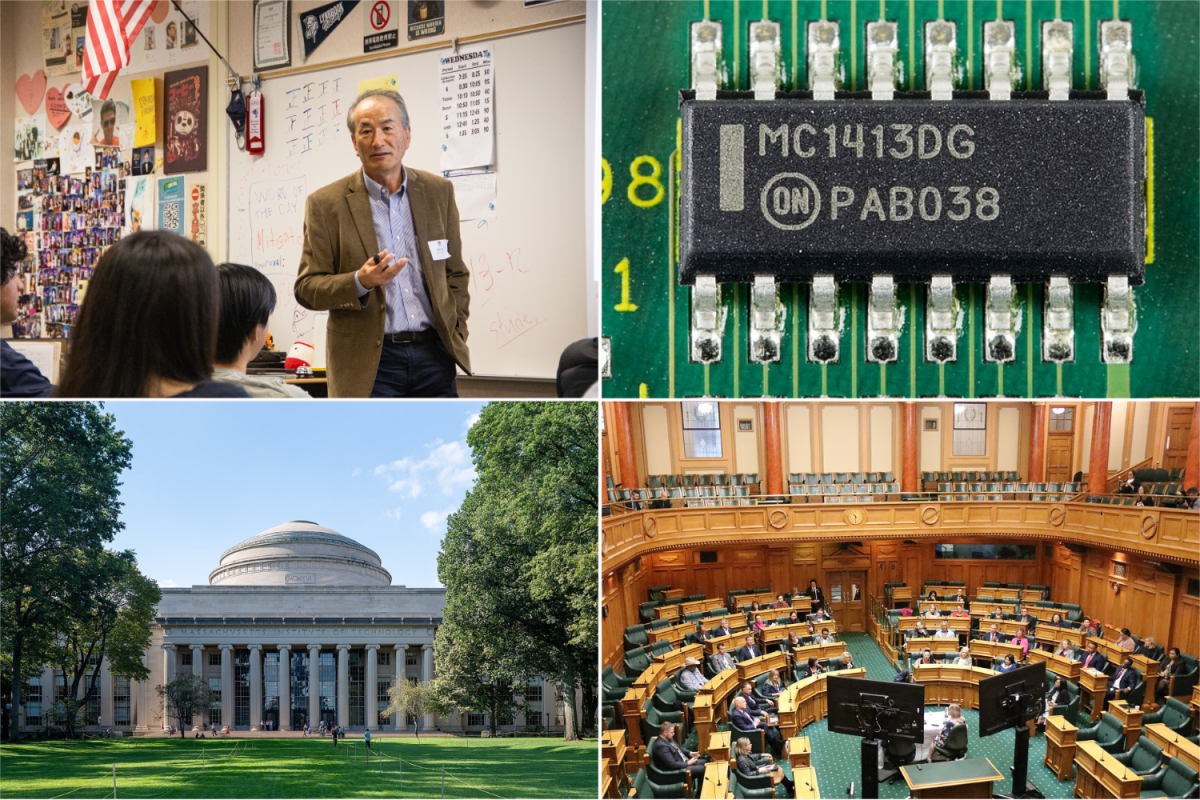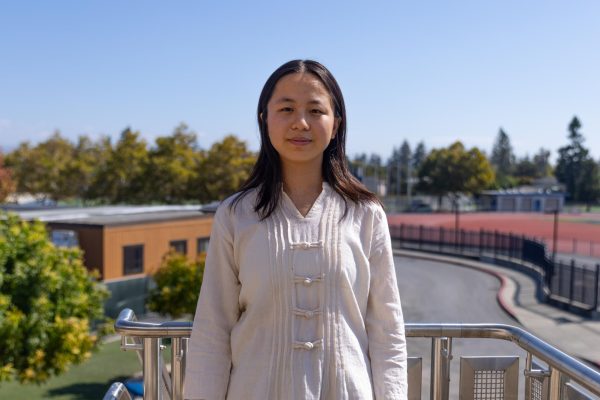School
Speakers from the American branches of various Japanese-owned organizations visited Japanese 4 Honors students on Nov. 20. Presentations on their respective conglomerates and the world of Japanese corporations were given by Kenji Furushiro, Japanese Chamber of Commerce of North California executive director and secretary; Manabu Ohashi, Marubeni Silicon Valley assistant general manager and Tetsuo Oyama, Skylight America CEO. Students participated in a tower-building team strategy game and a Q-and-A panel that included other Japanese business executives. One of the new event’s goals was to encourage similar visits in the future.
Community
On Nov. 1, Sunnyvale was announced as the location for the Design and Collaboration Facility, the headquarters of the newly formed National Semiconductor Technology Center. The NSTC consortium is a product of the CHIPS and Science Act, passed in 2022 to promote semiconductor research, design and production. The Sunnyvale facility will also serve as the headquarters for Natcast, the nonprofit organization designated by the U.S. Department of Commerce to oversee NSTC. It is expected to drive over $1 billion in research funding and create more than 200 jobs in the next decade after it opens next year.
National
During the week of Nov. 20, several university systems across the country declared that starting in fall 2025, students who meet certain criteria will be eligible for free tuition. For example, the Massachusetts Institute of Technology announced free tuition for undergraduates from families making under $200,000 a year. It will also cover the full cost of education, from housing to dining, for students with annual family incomes under $100,000. Other institutions rolling out similar measures include Carnegie Mellon University with a $75,000 income threshold for free tuition and the University of Texas system with a $100,000 threshold.
International
Tens of thousands of protestors gathered outside New Zealand’s parliament on Nov. 18 to oppose the Treaty Principles Bill. The proposed bill would alter the 1840 Treaty of Waitangi, an agreement between the British Crown and indigenous Māori chiefs fundamental to modern Māori rights in the country. Supporters say its reinterpretation of the document promotes equality, but opponents argue it would undermine current protections for the Māori against socioeconomic issues they disproportionately face. One of the biggest protests in New Zealand history, the Nov. 18 demonstration was the culmination of a nine-day march by foot.




































































